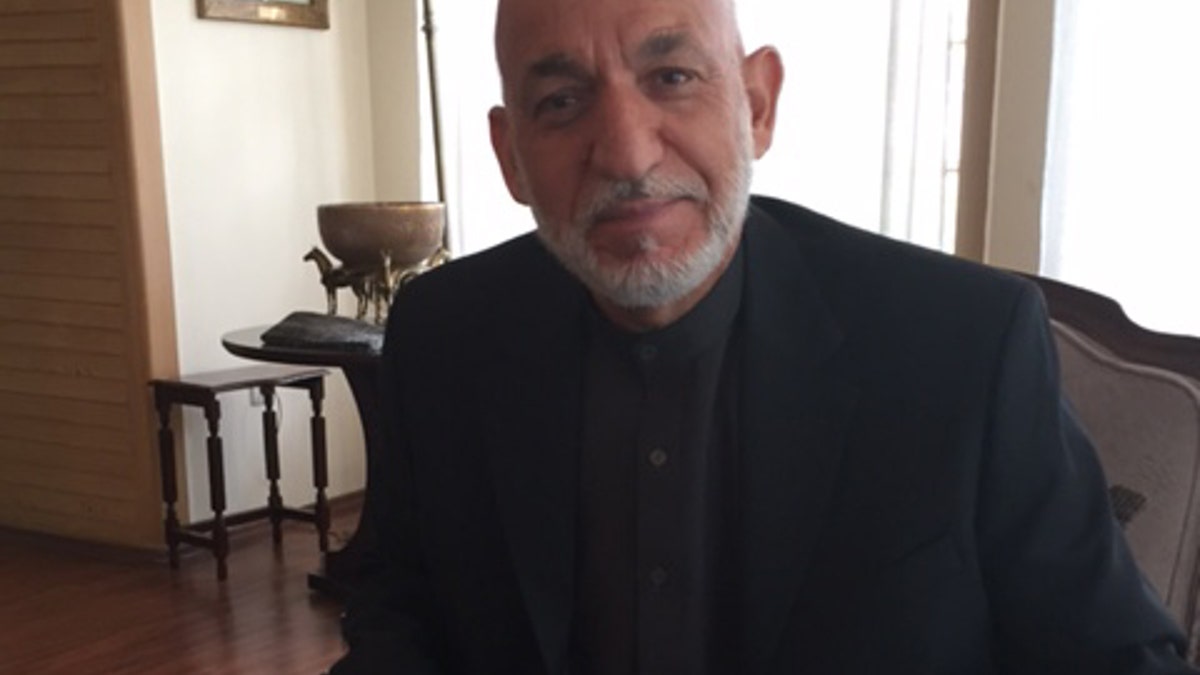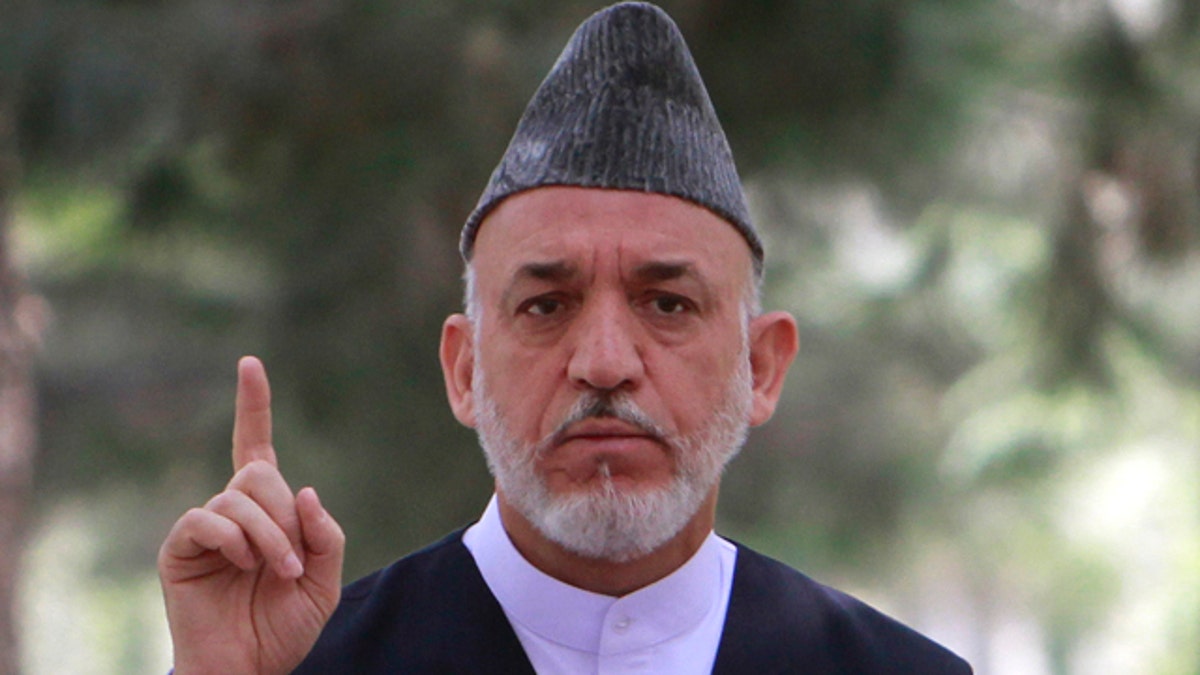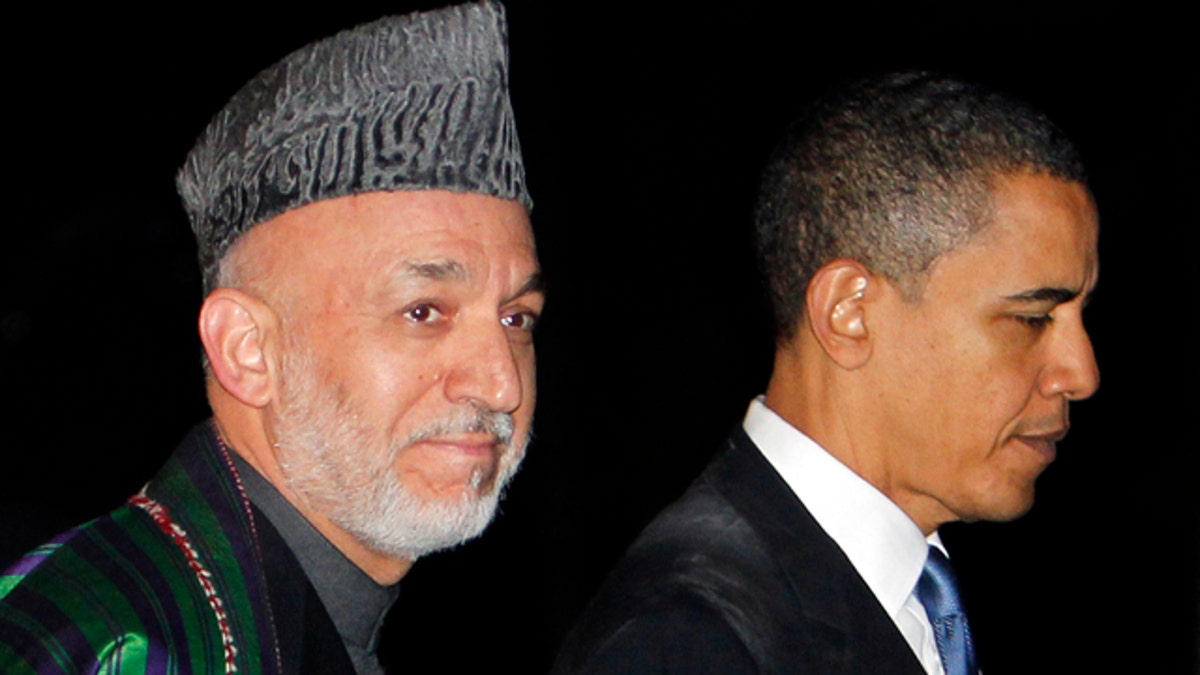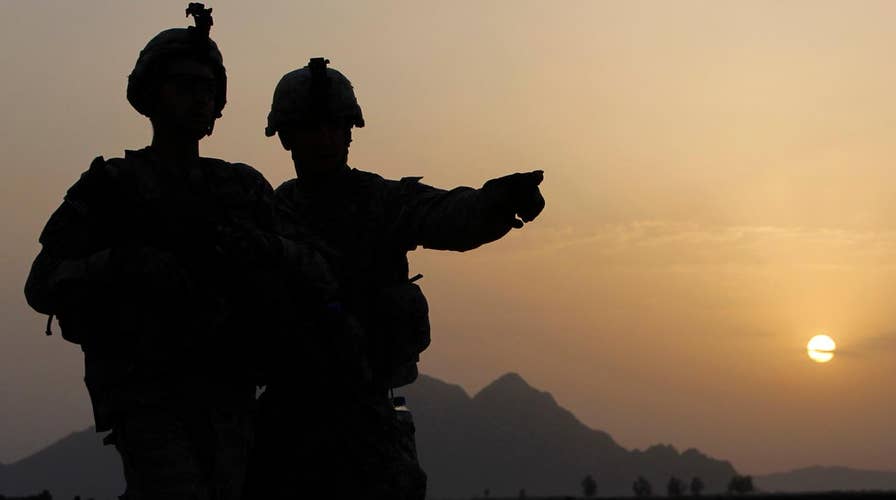2 US Army soldiers killed fighting ISIS in Afghanistan
Reaction from retired four-star Gen. Jack Keane, Fox News military analyst
KABUL, Afghanistan -- Despite the recent deployment of more U.S. troops to Afghanistan and other heightened efforts to eradicate terrorist groups, especially ISIS, Afghanistan’s former president, Hamid Karzai, believes the U.S. is in league with ISIS.
"The Daesh is a U.S. product," he told Fox News in an exclusive interview Wednesday in Kabul, using the Arabic word for the extremist Muslim group. "The Daesh -- which is clearly foreign -- emerged in 2015 during the U.S. presence."
Karzai, who was president from December 2004 to September 2014, said he routinely receives reports about unmarked helicopters dropping supplies to the terror faction on the Pakistan and Afghanistan border -- something that the "U.S. must explain."
He also expressed great distress at the dropping of the Massive Ordnance Air Blast (MOAB) last month, convinced it was a joint U.S.-ISIS operation.
"The Daesh had already emptied most of their (families and fighters) so this was coordinated. This group is just a U.S. tool. This cannot be any other tool," he went on. "First, the Daesh comes to drive people away and then the U.S. comes and drops that big bomb ... come on."

Hamid Karzai (Hamid Karzai)
In Karzai's view, the U.S. simply wants to use Afghanistan terrain to "test" its toys.
"They [America] think this is no man's land for testing and abuse, but they are wrong about that," he said. "We have a deeply patriotic population here that will not allow this."
He also quibbled with MOAB’s nickname, “Mother of All Bombs,” saying it should be “DOAB.”
"The mother is a kind figure. She does not fit with a bomb," Karzai lamented. "This should be the 'Deadliest of All Bombs.' The casualty is Afghan sovereignty, our soil and, most hurtfully, our dignity. How can they say they are our allies and then bomb us?"
He said several metric tons of chemicals were injected into the ground on MOAB’s detonation, but when asked if it had been tested said they did not yet have the means to do so.

Afghan President Hamid Karzai speaks during a gathering with high ranking Afghan military officials at the presidential palace in Kabul, Afghanistan on Tuesday, July 26, 2011. Afghanistan's president has told his country's soldiers and police that they face a difficult year ahead as they take on more security responsibilities, but he wants them to push ahead so that Afghanistan can eventually defend itself. (AP Photo/Musadeq Sadeq) (AP2011)
Karzai said that after that bomb was detonated he decided to destroy the "very nice" letter he had carefully crafted for President Trump, proposing such solutions as the need for less military engagement and alternatives "to rivalry" in the war-stricken country.
"I was about to sign it and then the MOAB came, so I abandoned it," Karzai said. "It was so disrespectful, why would I send him a letter?"
In the early years of his administration Karzai, considered to be the first democratically elected leader of the country, had close ties with President George W. Bush, but relations steadily soured and have hit a further low point since he left office almost three years ago.
In the waning years of his presidency, the Karzai team was widely accused of crony capitalism and immense corruption, accusations he staunchly denies as another U.S. fiction.

March 28: President Obama walks with Afghan President Hamid Karzai at the presidential palace in Kabul, Afghanistan. (AP)
"When this [accusations] emerged was when I began to speak out in opposition to the U.S. of spraying all our fields with chemicals," he said. "They used [the accusation of] 'corruption' then as another tool."
Karzai regards as his biggest presidential failure allowing a free market "laissez-faire" economic system, whereby transactions between public and private entities can proceed without government intervention.
"I should have gone with a Scandinavian or Chinese model of economy," he noted. "But other than that, I am happy. I did what I did."








































